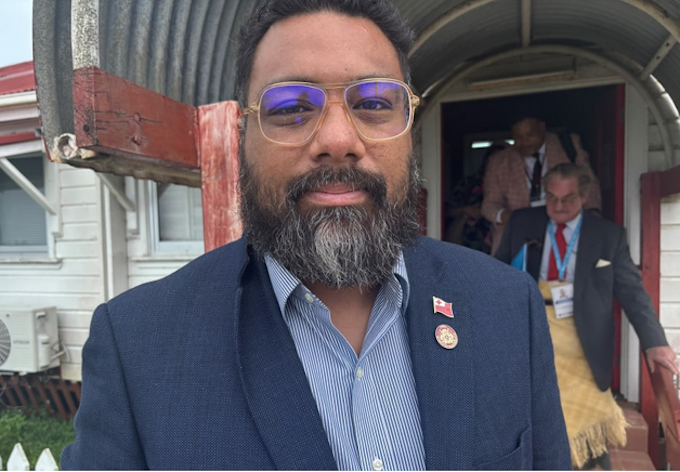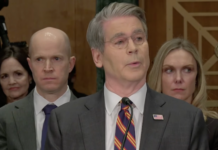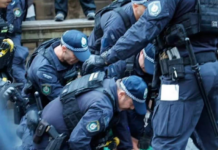
By Teuila Fuatai, RNZ Pacific senior journalist
As Tonga’s 26 newly elected representatives turn to choosing a prime minister among them, one potential candidate is identifying economic development and raising the standard of living as necessary priorities for the next government and its leader.
Lord Fakafanua was re-elected as a nobles’ representative for Ha’apai in last week’s general election.
He spoke to RNZ Pacific after the results were announced and outlined a range of areas he believed Tonga’s next prime minister and cabinet needed to focus on.
“There are a few low-hanging fruits available to Tonga, a few policy decisions that we don’t have to spend taxpayers’ money on — they can immediately show dividends and improve people’s lives, and especially lower the cost of living,” Fakanua said.
“In the last few weeks, we’ve experienced a shortage of fuel, and I think a lot of people will be looking towards how a new government will handle energy security and [consistency of] supplies that people are getting the services that they require from the government.
“And there’s always the issue of unemployment and job opportunities.”
Fakafanua, who has held the position of Parliament’s Speaker since 2017, would not explicitly confirm whether he wanted to be prime minister, but also said he was not excluding himself from the race.
Experience as Speaker
Speaking to RNZ Pacific, he drew on his experience as Speaker when asked about his regional ambitions should he become prime minister.
“I don’t want to pre-empt anything right now, but I just have to say that if given the opportunity, I think it would be important for the Pacific to stand as a unit, especially in this polarised world.
“There are certain priorities that the Pacific holds dear, and climate change is one of them. And of course, that’s something that us in the Pacific hold as an existential threat.
“So something like that is a commonality that we can find working together would prove very beneficial, not just for Tonga, but also for the region.”
Currently, the country is under a caretaker government as negotiations between the newly elected representatives take place for a prime minister. Once a prime minister is selected, they go on to pick a cabinet for approval, and appointment by the King.
Fakafanua was among the nine nobles who won a seat in the election, while caretaker prime minister Dr Aisake ‘Eke and his predecessor Hu’akavameiliku Siaosi Sovaleni were among the 17 people’s representatives elected.
Both ‘Eke and Hu’akavameiliku, alongside Fakafanua, have been touted as potential prime ministers for the next four-year parliamentary term. RNZ has requested interviews with ‘Eke and Hu’akavameiliku.
Another potential candidate
Meanwhile, another nobles’ representative — Lord Tu’ivakano — has also been flagged as a potential candidate for prime minister. Tu’ivakano is a former speaker and was also the first prime minister following Tonga’s 2010 constitutional reforms.
Fellow noble Lord Vaea told Pacific Media News he believed a noble as prime minister would provide stability for the government and country that had been lacking under prime ministers who were peoples’ representatives.
“It’s time to have a noble in,” Vaea said.
“Over the last four elections, PMs have had great difficulties controlling, that’s why I recommend that we go back in with the nobility.”
But not everyone is convinced.
Teisa Pohiva, the daughter of the late pro-democracy movement leader and prime minister ‘Akilisi Pohiva, has warned Tongans to be wary of a potential shift in power back to the nobility and monarchy.
“It’s as if slowly they’re coming back for the executive powers of the country, something that we’ve fought for so long for the people to be given the authority to run the country, the executive powers with due consultation with the monarchy, with His Majesty,” Pohiva said in an interview with PMN.
Crown Prince influence
She highlighted the position the Crown Prince held in ‘Eke’s government as both minister for foreign affairs and defence. He was appointed to ‘Eke’s cabinet as a minister outside of parliament. Under the constitution, the prime minister is permitted to appoint up to four ministers in this capacity.
“Personally, I would urge the representatives of the people, whoever is elected into Parliament, to stand together, try and put the differences aside and stand together and keep the prime minister position within the people,” Pohiva said.
“There’s nothing more important for us but performance and accountability to the people of Tonga.”

Under the current system, only nobles vote towards their nine representatives to Parliament, while the general public have a separate election process that results in the 17 peoples’ representatives.
Both voting processes take place on the same day and make up the general election.
The setup was implemented through the 2010 constitutional reforms which increased the number of people’s representatives in the legislative assembly from nine to 17.
Prior to that, the balance of power in the executive branch sat with the nobles, the King and his Privy Council, with the number of people’s representatives set at just nine.
For now, Tonga’s newly elected 26 representatives will be discussing who they believe would be best to lead. They will vote for the position by secret ballot, which must be won by a majority.
Under the constitution, the vote will be repeated if no one gains a majority, with the candidate who wins the least number of votes eliminated from the next round.
This article is republished under a community partnership agreement with RNZ.










































